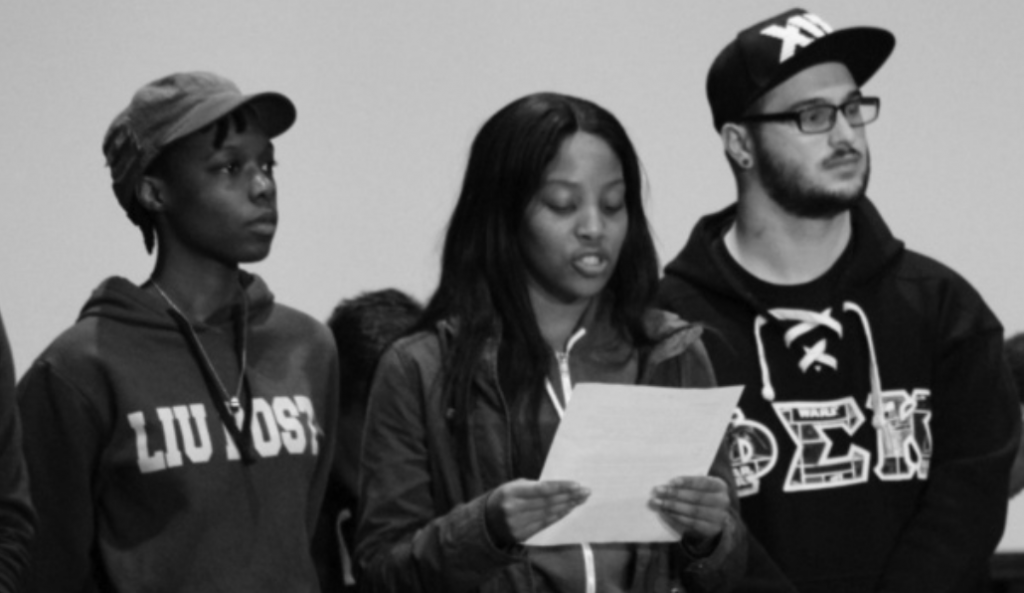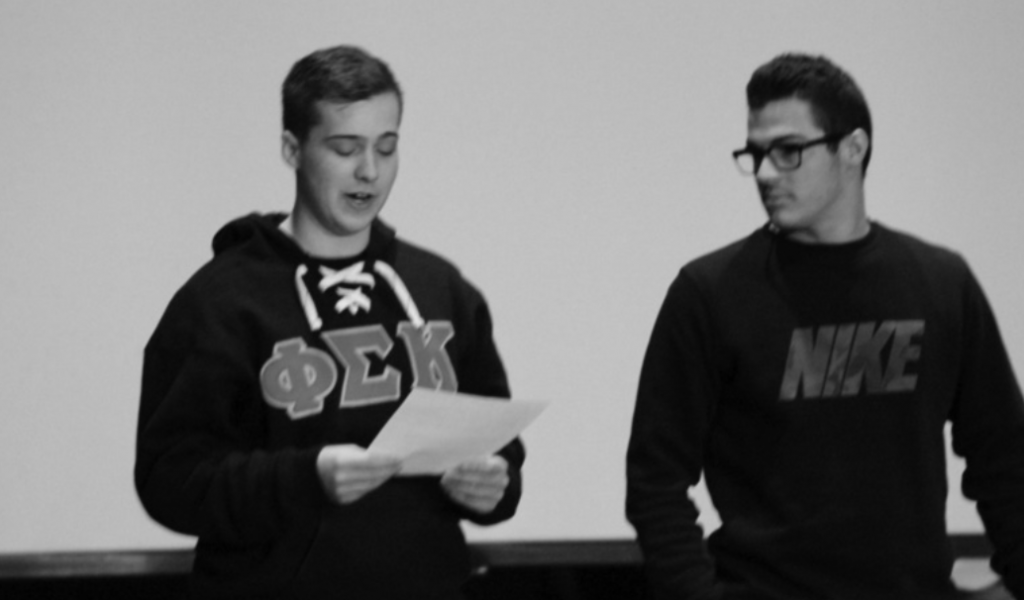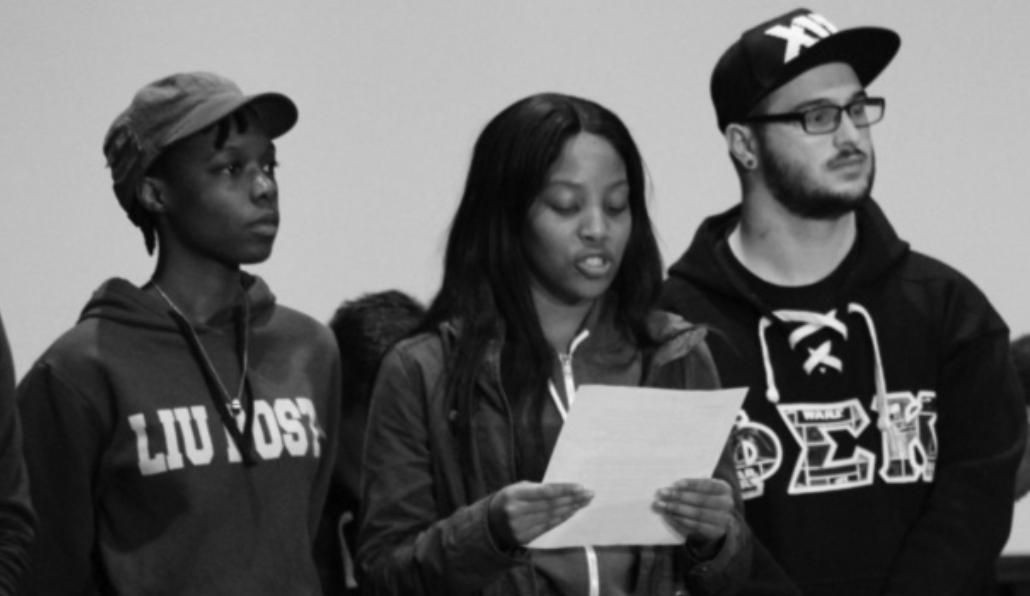By Jada Butler
Assistant News Editor
We take sexual assault ‘very seriously,’” 95 percent of American university presidents said in a montage of press releases on cases of sexual assault and rape that occur on or near their respective campuses. Their goal, however, may not be to protect the students, but to “protect the institution first,” as proven, unfortunately, throughout the film “The Hunting Ground,” a documentary presented by Greek and Campus Life at the Gold Coast Cinema in Hillwood Commons on Tues., Feb. 28. The film explored and exploited, case by case, rape culture in universities nation-wide.

The trajectory of the documentary followed several narratives of reported rapes on college campuses, beginning with the exhilarating moments of their college acceptances and ending with the tragic acts of their assaults and lack of support from those colleges.
Along with personal stories, the documentary included a myriad of national statistics and press releases about instances on college campuses in which a rape or assault occurred. According to the documentary, more than 16 percent of women are raped on college campuses, meaning one in five women experience rape within their four years of college. Of that 16 percent, 88 percent do not report their assaults, and only two to eight percent are false reports.
Throughout the documentary, students witnessed the inaction of the school and administration and the underreporting of these rape cases. Victims subjected to victim blaming, dissuaded and shamed for “crying rape” and putting these “safe” universities at risk of losing potential students.
“Just being a woman on a college campus and seeing someone brave enough to come out and say ‘this happened to me’ and to not receive help because of the money, it’s disgusting,” a student in the audience said.
In more cases than not, the instigator of the rape or assault goes free and without reprimand from the university. The documentary showed a disparaging comparison between the number of reported rapes and the number of expulsions, suspensions, or any action at all taken against the rapists, exposing more than 100 universities with a disproportion of over 100-200 reports and 0-3 expulsions.

The leading narrative followed Andrea Pino and Annie Clark, two rape survivors, coincidentally from the same university, who had experienced this lack of support, and banded together to create the organization End Rape On Campus. This organization utilized Title IX, a federal law prohibiting gender discrimination in education, to hold their university accountable for letting their rapists go free. Title IX cases hit universities’ federal funding.
Pino and Clark set out on a road trip, traveling to universities all over the country to meet with other silenced rape victims and to educate as many people about Title IX as possible.
LIU Post takes active stances in both preventing and dealing with sexual assault and rape cases. “Every Campus Life staff member is trained in Title IX,” Joseph Vernace, a campus life coordinator, said. The student bill of rights is posted in every building on campus, making Title IX easily accessible to students.
“New York state is definitely one of the most progressive when it comes to sexual assault,” Heather Stevenson, the Campus Education Coordinator for the Safe Center LI, who’s goal is to restore hope for victims of abuse, domestic/dating violence, and rape/ sexual assault, said. “That’s pretty evident here at Post, being in an environment – an empowered community – that doesn’t condone rape and sexual assault.”
Sigma Alpha Epsilon (SAE), a fraternity at LIU Post, decided in the Fall semester to promote awareness for sexual assault on campuses and to take part in Post’s second annual “Take Back the Night” (TBTN) movement. “Embarrassed and outraged” that their SAE brothers across the nation have given their fraternity the negative alias, “Sexual Assault Expected (SAE),” as well as coining the phrase “no means yes, yes means anal,” the LIU Post chapter of the fraternity joined TBTN to make a difference and show that sexual assault will not be tolerated.
Joining their pledge are the fraternities Tau Kappa Epsilon, Theta Chi, and Phi Sigma Kappa, as well as the office of Campus Life and the Safe Center LI. Together they have hosted several events on campus, including the “Pillow Project” in November 2016, in which fraternity members carried pillows decorated with statistics and quotes on rape and sexual assault around campus, mirroring a similar mattress project done by a female student at Columbia University; “Walk a Mile In Her Shoes,” an event on March 7 where men walked a mile in heels to support victims of rape and sexual assault; and the screening of “The Hunting Ground” to get members of the campus community to start a dialogue on rape and sexual assault.
Future events by Greek and Campus Life include a self-defense seminar in partnership with the Kung Fu club and self defense experts from Long Island on March 20 & 21 during common hour, and the big event, TBTN on March 30 at 7 p.m. in the Pratt Recreation Center. All proceeds will support the End Rape on Campus movement by providing funds for educational programs, training, and support on sexual assault.




Be First to Comment